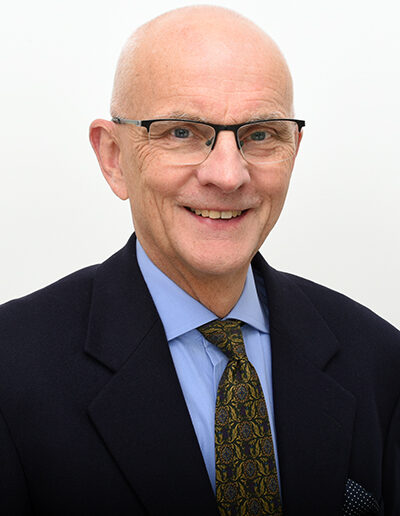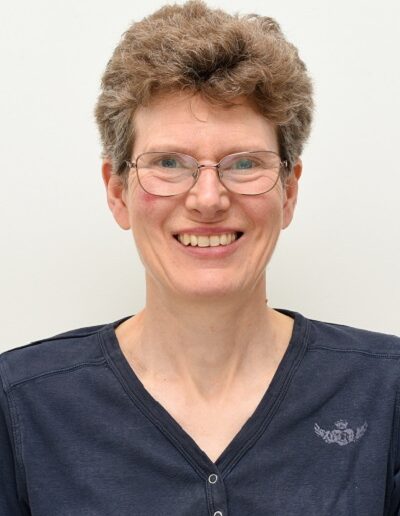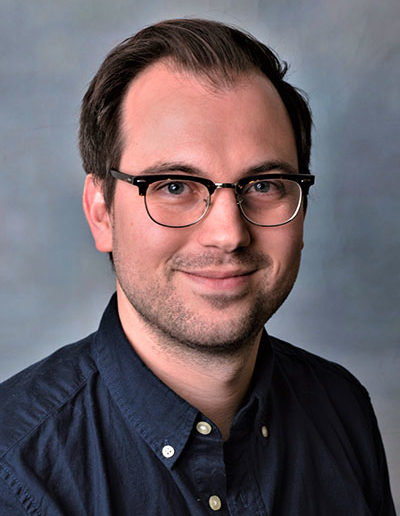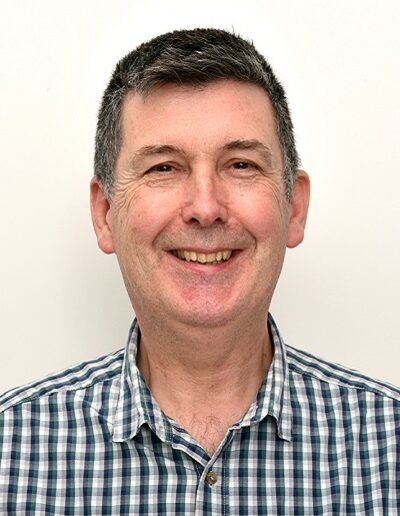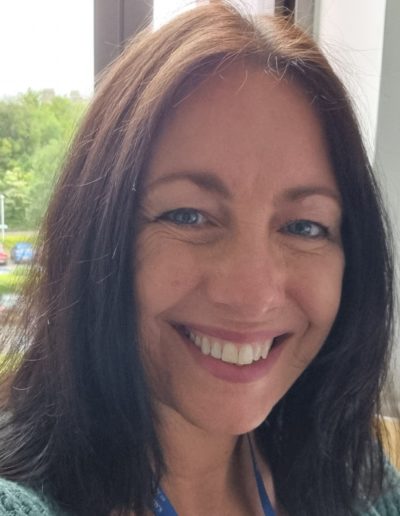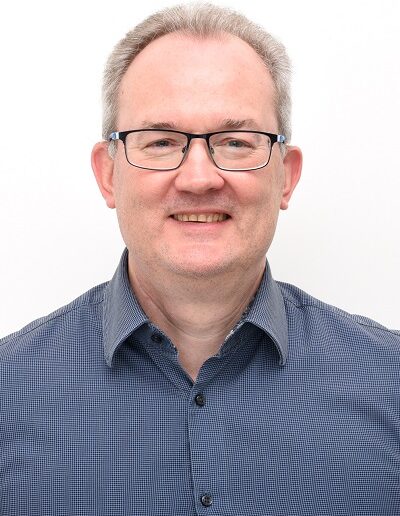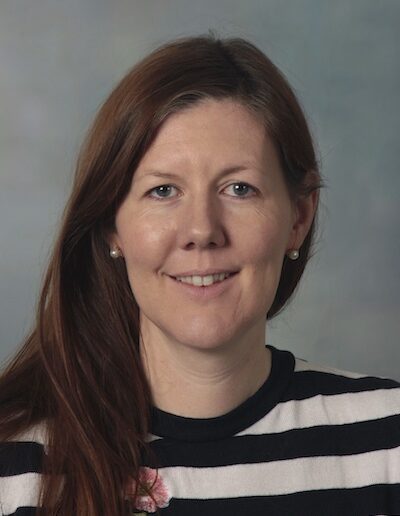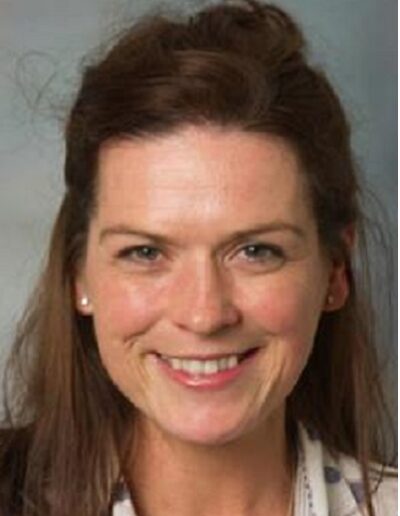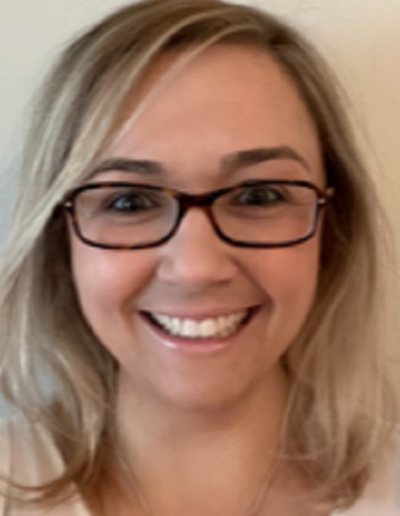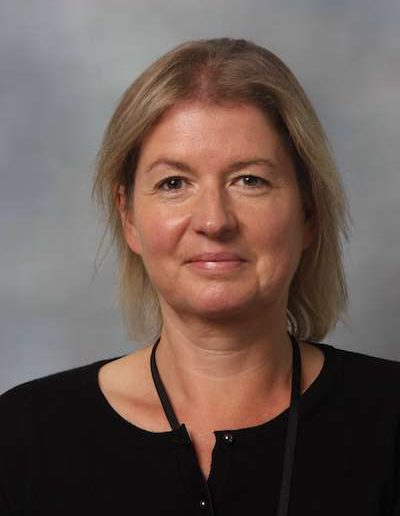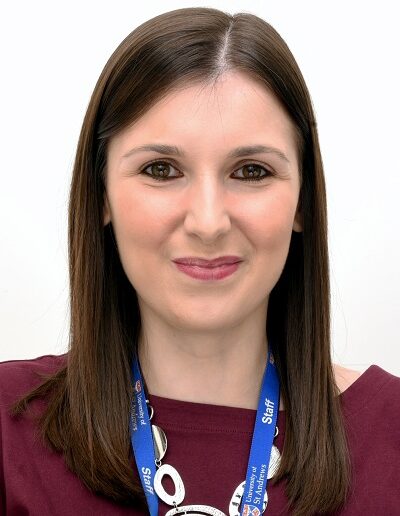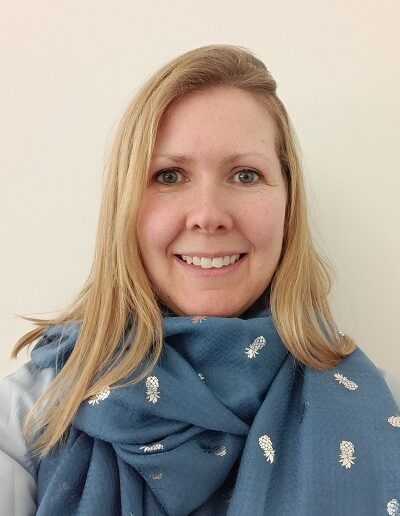ScotGEM Launchpad
Important things to do before coming to the University as an entrant on the ScotGEM (MB ChB) ProgrammeWelcome
The ScotGEM Launchpad web page is a place where you will find a lot of useful information about things to do before you get here, and what you will need to do when you arrive.
Welcome from ScotGEM Programme Director

Welcome to ScotGEM and CONGRATULATIONS! We realise you will be very excited to join the ScotGEM programme and both St Andrews and Dundee Medical Schools. We are excited to meet you too.
Our team has been preparing for your arrival, and we look forward to helping and encouraging you along the path to becoming a Doctor. That path is often difficult but is varied and interesting. You will learn much about yourself while learning medicine, as it is an all-encompassing profession. Being a Doctor is a privilege and we aim to make your journey with ScotGEM a truly unique and rewarding experience.
As you will have seen on our website, the curriculum is exciting and innovative. We are introducing some cutting-edge medical education techniques and technologies amidst a dispersed and community facing course. Our goal is to work closely with you as a ‘community of learners’, and with your help we will create the best course possible.
You will have a great opportunity to revisit University life in both St Andrews and Dundee. Both are truly special places; St Andrews is one of the oldest universities in the UK. It is small enough to be friendly, and large enough to provide the facilities and recreational opportunities of larger institutions. Dundee is renowned for offering a superb student experience in a dynamic city currently enjoying a waterfront renaissance. Thereafter Scotland becomes your oyster, and you will be living and studying in some of the most beautiful areas across our NHS partner boards.
We want to encourage you to take full advantage of the opportunities ScotGEM will bring you, not only to succeed in your studies, but also to enjoy the variety that St Andrews, Dundee and wider Scotland offer.
I look forward to meeting you and introducing our excellent team who are ready to guide you through your medical studies.
Andrew O’ Malley
ScotGEM Deputy Programme Director (Yr 1/2)
Welcome from the School President
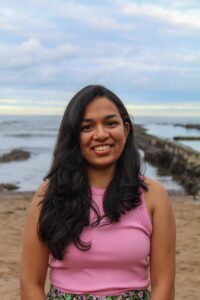
Dear Incoming freshers,
On behalf of the School of Medicine, I am delighted to extend a warm welcome to each and every one of you as you embark on an exciting journey towards becoming future medical professionals. As the incoming President of the School of Medicine, it is my honour to address you and share some insights that I hope will guide you throughout your time here at St. Andrews.
First and foremost, my heartiest congratulations on your admission to the University. This achievement reflects not only your academic excellence but also your passion for the field of medicine and your commitment to making a positive impact on the lives of others. You are about to embark on a path that is both intellectually challenging and incredibly rewarding. It may seem extremely daunting and new at first but believe me before you know it you will be so familiar with the three streets of St Andrews.
Your journey here at the School of Medicine will definitely require you to be dedicated and possess a strong work ethic. It is extremely easy to get caught up in the rigorous academic curriculum and the responsibilities that come with it. Therefore, it is essential that you remember that the path to becoming a doctor is a marathon and not a sprint. It is important to embrace a holistic approach to life. Remember, you are not only training to become exceptional physicians but also to be well-rounded individuals who can thrive in the demanding world of healthcare.
Within the medical school and the wider university, we strive to provide a supportive and inclusive environment that fosters both academic and personal growth. The faculty is extremely dedicated to our success and are ready to guide you through the complexities of medical education. Don’t shy away from reaching out to the faculty because although it may seem intimidating at first, they’re usually ready to provide help and are the most reliable source of information.
I absolutely encourage you to take advantage of the numerous societies ranging from sports clubs and arts societies to various ones catering to the medicine niche as they offer invaluable opportunities for networking, mentorship, and personal development. There are various institutions present within the medical school and the university as a whole, that you can reach out to, when you need support including the medical support team and student services.
Once again, I extend my warmest congratulations and welcome you to the School of Medicine. Your presence here enriches our community, and we are excited to witness your growth and achievements in the coming years. Finally, please feel free to reach out to me as well, if need be, I am extremely happy to help.
With my best wishes,
Shreya Apsani
President- School of Medicine
Welcome from the Bute Medical Society President
Congratulations! Welcome to Medical School!
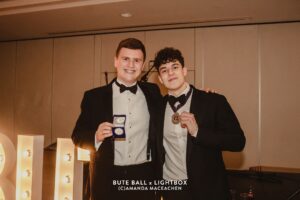
Martin Dover (BMS Treasurer) and Toby Lawson (BMS President)
What you have achieved is an immense feat of determination, grit, and mental strength, and you can be madly proud of yourselves. The Medical application process is vast and draining, but you could all qualify for the Olympics with all the hurdles you’ve had to jump over to get to where you are now; and whilst they have been hard, they will soon feel like a distant memory.
St Andrews provides such a unique pathway through Medicine, and I cannot wait for you to explore what it has to offer. This town, with its breath-taking landscape, bustling night life and wacky traditions will surprise you, but it will draw you in. You only get to live your first year at St Andrews once so meet people, go to events, try new things, explore.
All university experiences have the great and the gloom, but the wonderful pairing of Bute and St Andrews provides a unique and hugely supportive community no matter what year you are in. Alongside academic rigour and the beyond beautiful scenery, St Andrews holds something special in the community it fosters. Honestly, make the most of it!
So, who am I?
My name is Toby Lawson, I live in London, and I am the Bute Medical Society President for the upcoming academic year. I have just completed my second year of Medicine at St Andrews so by the time you join in September, I’ll be starting my third and final year. I am immensely excited and honoured to be able to welcome you in September to St Andrews. With its three streets and all the Bute events it will host, no doubt you will see me around – please come say hi! I am more than happy to chat or help with any questions, problems, restaurant recommendations etc. Alongside Medicine, I am involved in various societies and sports’ teams so please don’t be afraid to come to me with anything else you are curious about around the university.
What is the Bute Medical Society?
As well as being the largest and one of the oldest university societies, Bute is the most active society at St Andrews, with over 550 student members. Being a medical student and a ‘Butie’ go hand in hand since the society plays such an intrinsic role within the Medical School. Whilst most of our members are Medics both undergraduate and postgraduate (ScotGEM) we welcome any student at the university with open arms. Historically, the exceptional work of our committee and contributions from our members has earned us multiple awards including “Best Event” and “Best Society” for overall achievement.
Why you should (will) join!
Bute is the mortar that binds Medicine students at St Andrews. It is the singularly most ingrained society among medics and it acts to unite and support everyone. With a plethora of social and academic events throughout the year, we do our best to ensure there’s something for everyone.
We are ready to come back for 2023-2024 with a vengeance so be prepared for an insane year! Below is the low-down on just some of the great events we plan to run to get you all excited!
Hecklings: A welcome social event for all Medic freshers, normally held in the first few weeks of the semester involving games, challenges and other elements shrouded in mystery. Hecklings intends to be a crazy and iconic night, and one that every St Andrews medical student remembers (or at least the beginning part!).
Balls: We host three spectacular balls during the year. Our first Ball is called Hippocrates, a sneaky reminder of our study’s founder, which is held in the first semester and welcomes you all. Bute Ball, our largest most spectacular ball – and it will be spectacular – heralds our arrival back from the Christmas and New Year holiday: music, ceilidh dancing, delicious food, and lots of extra delights – an absolute gem. St Vitus Ball at the end of the year celebrates the end of exams and our departing third year comrades, helping you blow off steam in extravagant style. And a little extra piece of information, Bute subsidises all these events so all the balls are the best value for money you can get in town!
Academic talks: We encourage speakers to expand and challenge our medical knowledge and perspective. In the last academic year, we have been fortunate to host a series of talks under the banner of ‘Honest Talks’, in which speakers from a variety of fields provide insight into their role in the profession. Another series we hosted focuses on Evidence Based Medicine, giving us the opportunity to analyse research studies and the process of their conception more critically. In recent years, we have also been fortunate to hear from Andy Williams, leading knee surgeon to all your favourite premier league and premiership football and rugby players, Stephen Hearn the ‘Helicopter Doctor’ and many, many more. We are striving for this year to be as active and involved as ever, with a focus on bolstering student involvement and participation. Please let us know if you have any ideas for speakers you wish to invite!
Sports teams: Teaming up with your fellow Buties playing the sport you love is an excellent way to boost morale and put those claims of county sport x, y and Z you wrote on your personal statement to the test! Bute FC, Bute Rugby, Bute Hockey and Bute Netball have all been big hitters in the past but we are very much open to sharing the love with an array of other sports and getting a team started, as we are always on the lookout for new members. Training and matches are flexible around the very busy medicine timetable, so you do not need to worry that it’ll be too big a commitment. There is also no pressure and anyone, of any ability, is welcome so it’s a great opportunity to start something new!
Charity events: Pub quiz? Bake off? Fun run? Bute is not afraid to host classic fantastic events to raise money for the three charities chosen at the beginning of the year. Hugely popular and filled with great energy and spirit, our charity events are brilliantly designed to be a wonderful way to spend your time. Who wouldn’t want their histology lecturer to join them at the pub and grill them on Rihanna’s biggest hits?
Bute Revue: You’ll all very quickly meet the lecturers and Med Dems, so what better way to end the year than make fun of them and your fellow medical students at a comedy show? Undoubtedly one of the most iconic Bute events of the year. Just wait and see…
What should you look out for during freshers’ week?
Alongside all the events, gatherings and exploring during Freshers’ Week, the Medical School has some things planned to help introduce you to fellow students and staff:
Sunday 3rd September
Family tours
Between around 13:00 and 15:00, the Bute committee alongside staff will have the pleasure of giving you and your families/guardians tours of the Medical School. Whilst you might remember some aspects from your interviews, this will be your first opportunity to check it out for real! You can also feel free to ask your guides (second and third year Medics) any questions that you may have (tea and coffee will also be provided) Do not worry if you are unable to turn up to this, as there will be separate tours for all incoming medical students throughout the week.
Monday 4th September
Introduction: Alongside introductory talks on Monday from staff, you’ll be able to meet both me and your School of Medicine President to hear a little bit more about what we do.
Bute BBQ Social: Our long-standing tradition is a Bute BBQ in the afternoon from 17:00 in the Medicine Courtyard. Feel free to grab a burger, relax and mingle. Of course, vegetarian and vegan options will also be available.
Thursday 7th September
Welcome to our annual Medics Freshers’ Fayre! All medical societies and unions will have a stall ready for you to ask questions and sign up. Most societies (including Bute!) will be on the lookout for some First Year Representatives to join the committee. Being a First Year Rep in my first year was an excellent way to get insight into the ins and outs of Bute and meet some fantastic people especially from other year groups – would highly recommend applying! Make sure to look out for us in the university Freshers’ Fayre too!
Throughout week – Help desk!
During Orientation Week, we will have a staffed “help desk” style system at the bottom of the stairs in the Medical School to help re-direct you or answer any questions. Our staff are very friendly so don’t be afraid to approach them if you are unsure of anything.
Is there anything you can do now?
Take a deep breath. I know it can be intimidating to be swamped with lots of new information, but trust me there is so much to be excited about.
You can keep up to date with all things Bute and check out your fellow medics before you come to St Andrews by joining our official “St Andrews Medic Freshers 2023/24” Facebook page. During the year, this will also be a platform for lots of posts about upcoming events, ticket drops, elections, merch and more.
If you have any questions for us, you can:
- Send us a message on Facebook – Butemed Soc (our society profile, add us!) and follow us on Instagram @butemedics
- Before Fresher’s Week you can email me directly at [email protected]. During term-time you can email our secretary on [email protected], and we will be delighted to help.
I’ve given you a taster of what to expect from us next year but believe me when I say that we have only scratched the surface. Freshers’ Week will be crazy and with all the forms to fill out, and stethoscopes and lab coats to get hold of, it can be difficult to find a minute to sit back and chill. However, things have a funny way of falling into place eventually. So, before you enter the gleaming gates of our small, bustling town on the East Coast of Scotland, remember that you have an entire Summer ahead to relax, be proud, and get excited. St Andrews is a truly a wonderful place to study and the Bute Medical Society and University staff cannot wait to see you all around the Medical School.
Welcome from the ScotGEM 2023/24 Year 1 Class Rep.
To the ScotGEM Class of 2023 Entrants!
I’m Khaled, ScotGEM Year 1 Class Rep, and I have been given the wonderful honour of welcoming you all to the ScotGEM family!
Time has flown by since I was in your shoes, and I just want to say a big Congratulations!
Regardless of the path you have taken, I’m sure you have worked extremely hard to get here and I hope you are looking forward to the exciting and unique journey you have ahead.
Your time in first year will be hard work, but I can assure that from my personal experience, it’s a memorable one. From the very first time you introduce yourself to a patient, practicing clinical examinations on each other, or even swimming in West Sands beach after a long day, it’s truly an event-packed year.
There is a lot to learn in First Year, so be prepared for things to ramp up fast so it doesn’t catch you off-guard. Although daunting at first, know that you can do it! It will be hard work, but that doesn’t mean you’re not more than capable. You got in and you are more than deserving to be here.
I remember feeling overwhelmed but remember to stay calm, take plenty of breaks and help each other out. You want to be in each other’s corner as I couldn’t have gotten through this year without the friends I made along the way. They became my teachers, my distractions, my support.
I am looking forward to officially welcoming you to ScotGEM and to St. Andrews in person in September. I wish you all the best and hope you make the most of your First Year – it’ll be over before you know it!
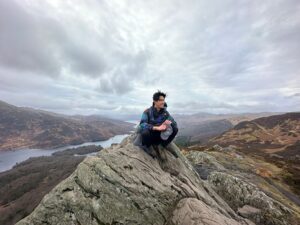
Khaled
Meet the team
You can view a list of all staff and contact details on the School of Medicine website.
Things to do before I arrive...
Download the ScotGEM Launchpad checklist
Read essential documents: ScotGEM Student Contract
The updated ScotGEM Student Contract is now available: ScotGEM Student Contract.
The ScotGEM Student Contract should be downloaded and read before arrival – however do not sign the contract yet – you will be asked to do this when you are here.
Read essential documents: School of Medicine Handbook /ScotGEM section
Prepare for: Protecting Vulnerable Groups Scheme
Please familiarise yourself with the online guidance which advises you on the information you will require to complete the online application as you only have 7 days to complete this after your meeting.If you are already a scheme member, find out if you are a member for both adults and/or children and also your Scheme membership number as you will need this information at your appointment.
Complete and return: Occupational Health Questionnaire
The occupational health cover letter can be found here
The occupational health questionnaire can be found here
You will be emailed on receipt of your questionnaire to arrange an appointment that suits you. If this appointment is not convenient, please contact [email protected] with alternative dates and times. Please ensure you register with a personal email address and not an institutional one (please check your spam boxes regularly as sometimes NHS emails end up there).
SMS text messages will be sent as reminders 24 hours prior to an appointment.
Arrange Accommodation
Review and complete essential tasks at the University New Undergraduate Students Page
Be aware that there are a number of admin tasks to do before you come to St Andrews. You will find a helpful list on the New Undergraduate Students page. https://whttps://www.st-andrews.ac.uk/new-students/ug/scotgem/ww.st-andrews.ac.uk/newstudents/.
Complete the Pre-Arrival Task for ScotGEM
Many of you will have had contact with medical professionals, doctors, nurses or other members of the allied health professionals. Something about these interactions has made you aspire to join the medical profession. Professionalism is something we are all striving towards. It is easy to recognise professionalism when we see it in action but much more challenging to define the term.
Your first ScotGEM task: What does professionalism mean to me?
There are two parts to this assignment.
Part 1: Access your pre-existing knowledge and experiences and use this to form the basis of your written response to the question; “What does professionalism mean to me?” There is no requirement for references. The expected length is 300 words (+/- 10%)
Please do not send it in to us before you arrive but note that this will be the very first item you are asked to upload to your professional portfolio.
We don’t want you to:
Conduct a literature search.
We don’t even want you to use google.
We especially don’t want you to worry about this task.
We do want you to:
Spend about an hour on the task.
Write from your personal viewpoint you may all have different ideas (we hope so!) but they will all be valid.
Part 2: We would like you to identify THREE keywords that for you, epitomise professionalism. We ask that you share them with us via this form before you arrive.
Come along prepared to discuss your views on professionalism during Orientation week.
Things to bring...
Personal documents
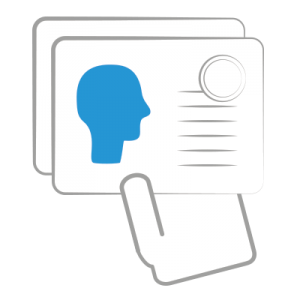
You will need these documents when you are in St Andrews:
- Passport.
- Driving Licence or an alternative formal piece of identification with your address (a bank statement is a good example).
- Birth Certificate (not a copy)
Immunisation History
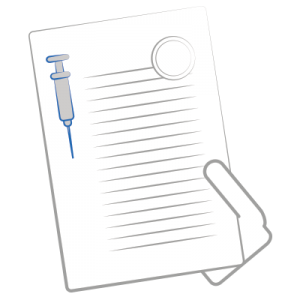
Please remember to bring copies of any documentation related to your past vaccination. Students are encouraged to keep this record to prove their immunisation history through their studies and working life. If you have missed any scheduled immunisations and your situation allows please catch up with these prior to starting at St Andrews. In addition, students are strongly recommended to demonstrate evidence of or take vaccination for BCG, Hepatitis B, Varicella, Influenza and Covid
Guidance is that all healthcare workers, which includes medical students, should be up to date with their routine immunisations, eg tetanus, diphtheria, polio and MMR. The MMR vaccine is especially important in the context of the ability of healthcare workers/medical students to transmit measles or rubella infections to vulnerable groups. While healthcare workers/medical students may need MMR vaccination for their own benefit, they should also be immune to measles and rubella in order to assist in protecting patients. Satisfactory evidence of protection would include documentation of having received two doses of MMR or having had positive antibody tests for measles and rubella.
Where a student cannot evidence to OH that they have had a BCG (TB) immunisation or have had a negative mantoux or IGRA blood test done in the last 5 years they must be screened and found non infectious prior to commencing clinical work.
Text books
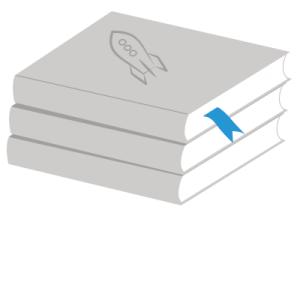
Books
We are aware that you will have many questions about the course and what you should be doing to prepare.
We are often asked ‘What shall I do about textbooks?’ For this reason we thought it would be useful to give you this list of recommended texts and to offer some advice about buying them. Please do not feel that you must rush to buy the texts before you get here (excess baggage can be heavy and expensive!) plus you will have access to all core textbooks electronically.
If you do wish to buy textbooks, we recommend choosing textbooks you will find useful for all four years of the programme: take some time to ask peers in the years above, or to appraise how much you benefit you’d get from owning physical copies knowing you will have e-textbook access and access to physical copies via the library too. Although our list may seem lengthy and expensive, it is unlikely that you will have to buy any other essential texts while you are at St Andrews.
The books will be available for purchase, and can be ordered in advance, from Blackwell’s Bookshop located in the Students Association Building in St Andrews. Blackwell’s can be reached at tel: 01334 476367 or email: [email protected]
In making a decision to select textbooks, not only do we try to find those best suited to our course but also, if possible, the books also include access to the publisher’s on-line learning resources.
eBooks
The Medical School and the University library have licensed several eBooks from different publishers (see reading list) providing you with electronic access to all the core texts required. This provides on-line access to the texts without restriction using your University user name/password combination. In addition to the core reading list which you may consider buying some books from, there are additional texts available on-line. Though these are considered to be very useful throughout our curriculum, we do not think it is essential for you to buy these actual texts.
An important thing to note about most eBooks is that they are often not accompanied by the extra on-line resources which are available if you buy the texts and activate the access codes to the publisher’s web site.
University of St Andrews MBChB (ScotGEM) Reading List (2023/24) follow the link, log in, click on ‘Find Lists‘ and change each search field to ALL, then type MBChB in the search box.
The Medical School and the University library subscribe to a number of key eBooks which will be available online to all medical students. Our advice is to wait until you get to St Andrews before making decisions about purchasing. Note that the library only holds 20 copies of each so it is recommended that students who prefer using physical copies consider buying their own copies in order to access the course literature in their own time. Additionally, most textbooks offer online resources that you can access using a code found within your purchased copy of the textbook. You should check that you are buying the most recent edition.
Is there anything I could be reading before I come?
Students often ask us if they should read anything in preparation for Medical School. Rather than burden yourself with facts before you actually come, we suggest that students might rather read something that stimulates the mind! Suggestions of books staff have read include:-
- Rebecca Skloot: The Immortal Life of Henrietta Lacks ( ISBN-10:150987702, ISBN-13:978-1509877027)
- Atul Guwande: Being Mortal: Illness, Medicine and What Matters in the EndT (ISBN: 978-0-8050-9515-9)
- Tools of the Trade: Poems for New Doctors feature some St Andrews faces and is given to St Andrews students when they graduate, you can read about the project here
Stethoscopes, Pocket Masks and Laboratory Coat
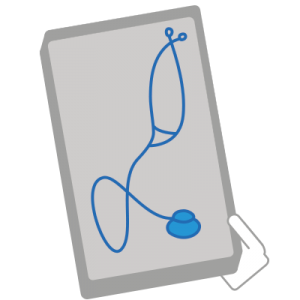
You will need to have your own stethoscope, pocket mask and laboratory coats for our clinical skills training.
Stethoscopes: We currently recommend the Classic Littmann III stethoscope, which you can find at: https://www.medisave.co.uk/diagnostics-equipment/littmann-stethoscopes/littmann-classic-iii-stethoscopes.html It is very important for your basic training that your stethoscope has both a bell and a diaphragm. The Classic Littmann Classic III is all you need; you will NOT require a specialist cardiology- or electronic stethoscope.
.
Where do I get a Stethoscope and Pocket Mask?
Use Google to research this. Both Medisave and the BMA ( British Medical Association) also offer a discount for St Andrews students, Medisave discount is site wide if you enter STANDREWS and BMA offer a discount on stethoscopes from August for students who join.
There are a variety of suppliers and some special deals may be available after you arrive in St Andrews.
Pocket Masks: You will need a pocket mask, the clinical skills team recommends the Laerdal LD040 or LD021 masks. These can be purchased from:
Laboratory Coats: You will need a white lab coat for the Dissection Room. We recommend “Howie” type lab coats but any white lab coat that is long sleeved with elasticated wrist and long enough to cover the thighs is acceptable. Ideally, it has snap fasteners (or press studs, instead of buttons) all the way up to the neck for easy opening and can be washed at higher temperatures. Although there are some available for purchase locally at Students Association shop, supplies are limited, therefore it may be better to buy one before you come to St Andrews, some suppliers include:
https://www.amazon.co.uk/s?k=Howie+Lab+coat&i=diy&crid=1HBXVQLO5EY3N&sprefix=howie+lab+coat
https://universityofstandrewsshop.com/collections/lab-coats/products/cuffed-labcoat
Should you be unable to purchase one before the start of term, you can borrow a lab coat from the Anatomy Team, donated by former students, dry-cleaned and in good condition until yours is delivered.
Safety Glasses: You will need your own safety glasses for dissection. There are many suitable types, some examples are:
Example of Dissecting Room lab coat and safety glasses:-
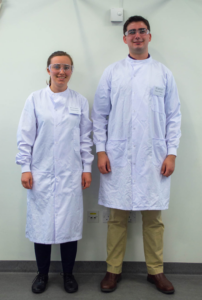
Clinical Skills Dress Code
The following guidance is not meant to be exhaustive but provides a quick framework for students to follow. It is in keeping with NHS Fife Dress Code and Uniform Policy (2020) which aims to ensure that all involved in care delivery maintain safety, convey a professional image and instill and maintain public confidence.
As students learning within a practice environment, you are expected to follow this guidance at all times during hospital or community based placements and also within a simulated clinical environment.
- Wear your identity badge that confirms you are a student.
- Dress in a discreet and professional manner to convey a professional image and create and maintain public confidence.
- Arms should be ‘bare below the elbow’ when delivering clinical care/working in or visiting a clinical area.
Where for religious reasons, students wish to cover their forearms during patient care activity; it is acceptable to wear disposable over-sleeves where gloves are used, with strict adherence to hand and wrist washing before and after use. Over-sleeves must be disposed of as disposable gloves. Where for religious reasons, students wish to cover their upper forearms during patient care activity, it is acceptable to wear three-quarter length sleeves. Three-quarter length sleeves must not be loose or dangling. They must be able to be rolled or pulled back and kept securely in place during hand-washing and direct patient care activity.
- Wear appropriate footwear (clean, in a good state of repair, enclosed heels and toes). Excessively high heels should not be worn. Shoes should be black or navy however it is acknowledged that many staff/students, in particular those involved with moving and handling of patients, prefer to wear trainers. If trainers are worn they should be where possible black or navy, must be clean and made of a non-pervious material.
- Tattoos that could be considered offensive should be covered where this does not compromise good clinical practice.
- Keep hair tied back and off the collar.
- Jewellery is restricted to wearing one plain metal finger ring and one pair of plain stud earrings. Any other visible body piercings should be removed. Wristwatches, fitness tracker wrist- straps and bracelets must not be worn when in clinical areas. Jewellery worn for religious reasons such as Kara bangles worn by initiated Sikhs do not require to be removed for hand decontamination, however, they should be pushed up the arm and secured in place to enable effective hand decontamination and during all direct patient activity.
- Keep finger nails short and clean. No nail varnish, false nails or nail extensions should be worn.
- Cosmetics, perfume and aftershave should be discreet.
- Neck ties or lanyards should not be worn when in clinical areas.
- Pens or scissors should not be carried in outside shirt pockets.
- Store your stethoscope in a safe place such as your pocket or in your bag when moving between clinical areas or during breaks. Stethoscopes should not be worn around the neck.
For the purposes of learning clinical skills students practice non-intimate examinations on each other. You may therefore also wish to pack some sports wear, such as shorts (and/or leggings) and a t-shirt; or an acceptable suitable equivalent. Examples of clinical dress code are:-
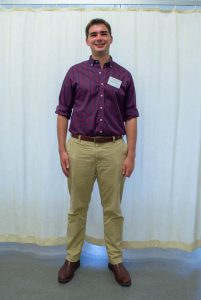
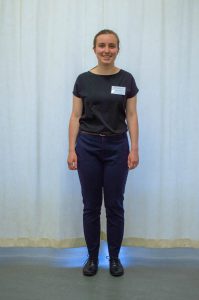
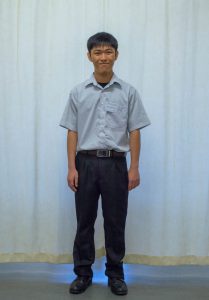
Things to think about...
IT skills

During your time as a medical student you will need to be competent with the Microsoft products Word, Excel and PowerPoint. If you are not as familiar as you would like to be with these programs, you can enrol is some formal training with the university. The University offers some IT training resources.
Blood borne viruses
Support
If you want to explore this further contact [email protected] putting “support” in the subject line. If you have any specific concerns or questions in relation to support available for medical students please do get in contact with the Medical Support Team on [email protected] . We want you to achieve your full potential.
Agents of Change Placements
Angela Flynn, Agents of Change Lead, email: [email protected]
Jayne Stuart, ScotGEM Service Learning and Community Engagement Vertical Theme Lead, email: [email protected]
Summary:
As a Year 1 ScotGEM medical student you will complete at least 20 hours in a third sector community placement, offering positive benefits for both students and third sector partners.
Background:
The ambition of the ScotGEM programme is for new doctors in the 21st century to be able to both deliver care and develop healthcare systems. Much medical training is focused upon using techniques to gather information from each individual patient in order to inform the choice and delivery of treatment. However, to practice as an effective medical professional within local and global communities we believe that a fuller understanding of these communities is essential.
Through spending time with third-sector organisations, you will be able to develop a fuller understanding of the social determinants of health and the impact on health and well being. You will also see ways that you can work in partnership with third-sector organisations to give the best clinical care you can.
Examples of previous students’ activities include:
Attending support groups
Creating and offering food parcels
Community gardening
Developing activities for children and young people
Meeting with and supporting people who live on the streets
What this means for you
As a ScotGEM student, you are required to undertake one of these placements during October-December 2023. Information and support will be provided to help you make choices about what kind of placement activity you would like to experience. We endeavour to meet your placement preferences.
When you start the course in September, you will be given details about what placements are available, when they occur and how you submit your preferences. In the meantime, please think about the type of voluntary sector placement you would like to take part in; this may continue from previous experience you have had, or you may wish to try something different. There is also the option of self-selecting a third-sector organisation with whom you already have a link with.
“You couldn’t learn this in a classroom. You have to experience it” Dominic Pascoe, previous ScotGEM Y1
Any questions..?
I've got a question about IT, or computers...
 It’s good that you are thinking about IT. We’ve made a special section of Launchpad just for questions about IT. You can find this here…
It’s good that you are thinking about IT. We’ve made a special section of Launchpad just for questions about IT. You can find this here…I've got a question about Orientation Week?
Orientation
The School will be running in-person induction events during orientation week, including some academic events.
Tours of the School of Medicine for parents/families will be available.
The formal School of Medicine orientation begins at 9.00am on Monday of orientation week this will be in person – all timetabling information will be found on your Solas timetable which you will log into with your username (first part of your university email address) and email password here.
At this introductory event, you will be welcomed by the Dean of Medicine, the ScotGEM Programme Director, the Year 1 Lead and the Lead GCM. We will also explain all the events that are planned for Monday and the rest of orientation week.
During orientation week there will be a full programme of introductory classes specifically organised by the School of Medicine for new medical students – where possible these will be delivered live and in person. Your attendance at these classes is essential since they will help you to find you feet in the early stages of you medical course.
The provisional programme for ScotGEM students will be uploaded shortly.
What about improving my study skills?
What I wish I would've known before coming to medical school
Find a study technique that works for you!
-A popular study technique among medical students is through using flashcards, namely Quizlet and ANKI. See if that works for you, find out which one you prefer OR use both!
-There are loads of resources out there, find the ones that help YOU the best. Here’s some to get you started: The Oxford Handbook of clinical medicine, Zero to Finals website, Osmosis and Amboss.
The Learning Objectives, Lectures, KuraCloud and CLIC materials will help guide you when feeling lost on how in-depth to study.
Regular and consistent studying and revision goes a long way – remember, little and often!
The Clinical Placements (GCM Days) are what you make of them – take advantage of the early patient and clinical interactions and put yourself out there.
You and your peers are all part of the same unique experience that is ScotGEM, so be there for one another and help each other out – no one knows what you’re going through best than those with you along the ride.
You all come from a wide array of backgrounds, so avoid trying to compare yourselves with your colleagues. You all come with your own unique skill sets and study styles.
Appreciate that medicine requires a lifelong commitment to learning. You won’t be able to learn everything there is to know all at once, and that includes first year content. Know when enough studying is enough and remember that it’s okay to not be 100% on top of it all.
Join sports teams and clubs and participate in what both St. Andrews and Dundee University has to offer. Medicine itself can be very insular, and its important to try and make connections outside of ScotGEM
-Try and organise activities with your course mates so that you have something to do and talk about other than medicine.
Lastly, don’t neglect your physical and mental health!
You’re going to have a truly memorable time at ScotGEM. We’re excited to welcome you to this amazing experience, and we hope you enjoy the ride!
Khaled De Jesus – SCOTGEM Y1
A popular study technique amongst students is using flashcards, namely Quizlet or Anki. The main advantage of Quizlet is that you can create a study set and add it to multiple different set folders, so you might add your ‘anti-epileptic drugs’ set to your ‘week 25 – headache’ folder AND to your ‘pharmacology folder’. You can then study an entire folder at a time, which makes it easier to focus your studying, by case of the week, or by system. Others prefer Anki, because it applies the ‘spaced repetition’ study technique.
You want to revise as you go. Preparing for the week’s content during the weekend prior makes a huge difference. If you prepare flashcards on your lectures, clinical skills, and anatomy, during the weekend before they happen, you will save yourself a lot of stress, and you will be able to give your full attention during the live delivery of the material. Don’t take too much time on making these flashcards, even screenshots of lecture slides can suffice, as at least it means you’ve read the material once before it’s delivered. Preparing your study materials in advance also means that you can actually revise them as the week progresses, using your flashcards, and you’ll feel much more on top of things. It also means you have time during the week to enjoy the societies and events that the university has to offer!
Try to prioritise sleep, healthy meals and snacks, and sports, to avoid burnout! The fitness center has really fun gym classes – I highly recommend Zumba!
The learning objectives, the lectures, and the CLIC guide will guide you on the depth of learning you should aim for.
‘The Oxford Handbook of clinical medicine’, the Zero to Finals website, Osmosis, and Amboss are huge life savers if you’re struggling to get your head around any concepts.
Amber Jeffryes – ScotGEM Yr 1
I still have another question…
You can contact us by emailing [email protected]
Orientation week
2023 Orientation week is being delivered in-person and includes practical inductions and lectures.
The University, Students’ Association, Societies and the Athletic Union organise a whole series of social and academic activities during orientation week. Find out more about Orientation Week at the University.
As well the University orientation events, the School of Medicine is organising a programme specifically for new medical students to help you prepare for the beginning of your course.
During orientation week you will be able see a full timetable of events on your Solas timetable that you can access using your username (first part of your email address) and email password here. The provisional programme can be viewed here.
The Bute Medical Society can also be contacted on [email protected], via Instagram @butemedics or their Facebook page for entrants St Andrews Medic Freshers on Facebook
Finding your way about
These should help you to find your way here, and around the Medical building:
University of St Andrews
North Haugh
St Andrews
KY16 9TF
Admissions: +44 (0) 1334 461886
ScotGEM enquiries: +44 (0) 1334 463619
fax: +44 (0) 1334 467470
email: [email protected]

